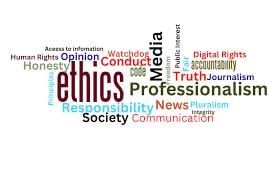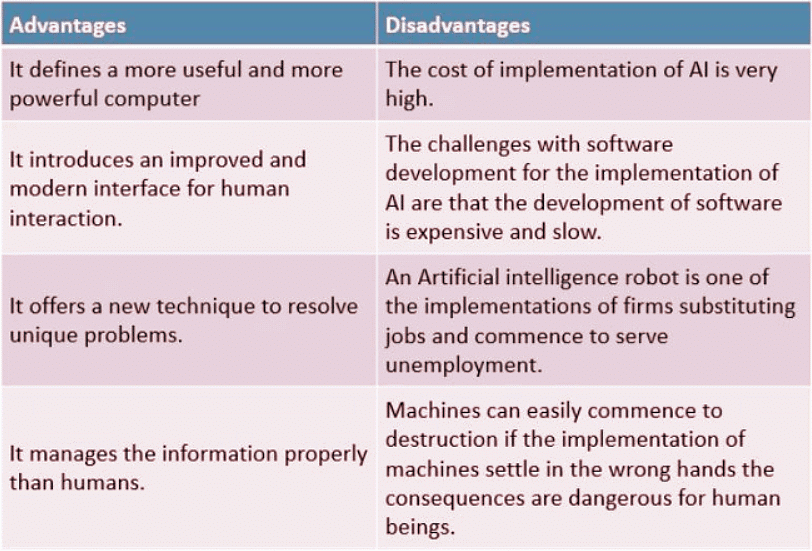Ethics, Integrity & Aptitude - 1 | Current Affairs & Hindu Analysis: Daily, Weekly & Monthly - UPSC PDF Download
| Table of contents |

|
| Ethical Conduct of Controlled Human Infection Studies (CHIS) |

|
| Media Ethics |

|
| Consumerism |

|
| Fostering Ethical AI |

|
| Ethics of Lawmakers |

|
| AI and Human Rights |

|
Ethical Conduct of Controlled Human Infection Studies (CHIS)

Context
The Bioethics Unit of the Indian Council of Medical Research (ICMR) has formulated a consensus policy statement that discusses the ethical considerations surrounding Controlled Human Infection Studies (CHIS), paving the way for potential adoption in India.
What is Controlled Human Infection Studies and Related Ethical Concerns?
- About:
- CHIS is a research model that intentionally exposes healthy volunteers to pathogens under controlled conditions.
- It has been utilized in various countries to study diseases such as malaria, typhoid, and dengue.
- Benefits of CHIS Implementation: ICMR recognizes that CHIS has the potential to provide numerous benefits for medical research and public health:
- Insights into Disease Pathogenesis: CHIS can offer unique insights into how diseases develop and progress, leading to a deeper understanding of infectious diseases.
- Accelerated Medical Interventions: By allowing researchers to study disease progression more rapidly, CHIS can expedite the development of new treatments and vaccines.
- Cost-effective and Efficient Outcomes: CHIS requires smaller sample sizes compared to large clinical trials, making it a more cost-effective research model.
- Contributions to Public Health Response: Findings from CHIS can inform public health responses, healthcare decision-making, and policy development.
- Understanding disease dynamics through CHIS can enhance preparedness for future pandemics.
- Community Empowerment: Involving communities in CHIS research can empower them to take ownership of their health and participate actively in healthcare initiatives.
- Ethical Challenges:
- Deliberate Harm and Participant Protection: Exposing healthy volunteers to pathogens raises concerns about potential harm to participants.
- Inducement and Compensation: Determining appropriate compensation for participants in CHIS can be challenging.
- Offering too much compensation might unduly induce people to participate, potentially compromising informed consent.
- Conversely, offering inadequate compensation might exploit vulnerable individuals.
- Third-party Risk: The risk of disease transmission to third parties beyond the research participants is a concern.
- Justice and Fairness: There is a concern that CHIS may disproportionately involve participants from low-income or marginalized communities.
Way Forward
- Establishment of Independent Ethics Committee:
- The initial step involves the formation of an impartial ethics committee tasked with a comprehensive evaluation of CHIS protocols.
- This committee should comprise experts in pertinent domains such as medical ethics, infectious diseases, and legal representation to ensure the safeguarding of participant safety and rights throughout the entire process.
- Informed Consent and Withdrawal Procedures:
- Full disclosure of the potential risks associated with CHIS is imperative, ensuring that volunteers are completely informed.
- The acquisition of informed consent is mandatory, and participants should retain the right to withdraw from the study at any point without facing any adverse consequences.
- Risk Mitigation and Medical Support:
- Implementation of measures to minimize the risks to participants is crucial.
- This involves diligent medical monitoring during the trial and providing access to appropriate medical care and treatment in the event that any participant falls ill.
Media Ethics

Context
The timeless wisdom of the Rigveda, articulated millennia ago, conveys a profound message emphasizing the value of freedom of expression: "Let noble thoughts come to us from every side." This ancient sentiment underpins the foundation of the contemporary democratic structure, with individual liberty of expression standing as the paramount principle. The tangible manifestation of this principle, known as 'journalism,' has evolved in influence over the years. It has emerged as a highly esteemed profession among today's career-oriented youth, and I am confident that I am addressing a group of individuals today who hold great promise. Many among you are likely to carve a path for yourselves as prominent journalists in the years to come.
Aim
- Journalism's main goal is to provide the public with news, opinions, comments, and information on topics of public interest in a fair, accurate, unbiased, and decent manner.
- The Universal Declaration of Human Rights was adopted by the United Nations in 1948, outlining certain freedoms for all people.
- The most fundamental of these freedoms is enunciated in Article 19 of the Declaration, as follows: "Everyone has the right to freedom of expression and opinion," according to the United Nations. "This right includes the freedom to hold opinions without interference, as well as the freedom to seek, receive, and impart information and ideas through any medium and across all borders."
- The right to "freedom of speech and expression" is guaranteed by Article 19 (1) (a) of the Indian Constitution.
Importance
- Role of the Press in Democracy: The press plays a vital role in democracy by shaping public opinion and fostering a transparent parliamentary system. It acts as a bridge between the government and the general public.
- Globalization of Indian Media: As the Indian economy globalizes, the media landscape undergoes significant changes. The responsibility of the press to safeguard the interests of the people and the nation has grown immensely, especially with the global reach of Indian media.
- Media's Influence and Evolution: Private television channels have transformed the media's role from being the Fourth Estate to a prominent force in society and governance. It not only reports events but also motivates and leads public discourse.
- Power and Impact of the Media: The media holds substantial power over individuals, institutions, and ideas, capable of making or breaking them. Its influence on society is extensive and potent.
- Journalistic Privileges and Responsibilities: Journalists, as information gatherers, have the right to 'interrogate' others but must exercise this privilege responsibly. Gathering information from authentic sources and reporting it objectively and positively is crucial to inform rather than sensationalize.
- Protection Against Interference: Any interference, whether from the state, owners, or other sectors, hampers the media's ability to fulfill its societal responsibilities.
- Ethical Standards in Journalism: Adherence to ethical standards is essential, including accuracy, restrained language, objectivity, and fairness in reporting. Balancing freedom of expression with societal obligations is crucial for responsible journalism.
- Albert Schweitzer's Perspective on Ethics: According to Albert Schweitzer, ethics begins with a sense of solidarity with other human beings, emphasizing the importance of ethical considerations in journalism.
- Definition and Importance of Ethics: Ethics in journalism refers to a set of moral principles guiding conduct. It is essential for maintaining public trust, preserving credibility, and upholding the public's faith.
- Journalistic Duties: Journalistic ethics involve honesty, fairness, seeking views of subjects before critical reports, correcting factual errors, and refraining from falsifying or misleadingly using pictures.
Way Forward
- Responsibility to give people a chance to respond to critical opinions as well as critical factual reporting
- The appearance as well as the reality of objectivity; some codes forbid journalists from accepting gifts.'
- Consideration for others' privacy
- The responsibility to differentiate between facts and opinions
- Responsibility not to discriminate or incite hatred based on race, nationality, religion, or gender
- Some codes require journalists to avoid mentioning the race, religion, or nationality of news subjects unless it is relevant to the storey; others require coverage that promotes tolerance.
- Obligation not to obtain information through unethical means
- Responsibility not to put people in danger
- General decency and taste standards
- Obligation not to prejudge an accused's guilt and to report the dismissal of charges or acquittal of anyone about whom the paper had previously reported that charges had been filed or that a trial had begun.
Conclusion
- Protection of Press Freedom: Press freedom needs safeguarding not only from external interference but also from within. Internal mechanisms like "letters to the editor," "internal Ombudsman," "Media Council of Peers," and "Media Watch Groups" ensure adherence to guidelines, promoting media accountability and credibility.
- Ethics for Fair and Objective Press Use: Ethics in journalism is not about controlling the press but ensuring fair and objective use, upholding true freedom of speech and expression.
- Role of Press Councils: Press Councils globally, including the Press Council of India, aim to enhance media standards by developing a code of conduct. Notably, the legislature did not delegate the task of 'laying down' a code of conduct to the council.
- Dynamic Nature of Ethics: Ethics can't be rigidly defined; they are broad principles, not absolute laws. They lack a one-size-fits-all approach, relying on moral sanction and the conscience of media professionals.
- Council's Influence on Conscience: The Press Council's pronouncements activate the conscience of media persons. The principles articulated in the "Norms of Journalistic Conduct" serve as guiding beacons, fostering ethical prudence.
- Gandhi's Perspective on Journalism: Mahatma Gandhi, a prominent journalist, emphasized the service-oriented aim of journalism. He likened an uncontrolled pen to a destructive force, emphasizing that external control is more poisonous than lack of control.
Consumerism

Context
The COVID-19 pandemic resulted in changes in consumer behavior, causing a contraction in demand. However, the current phase of post-pandemic recovery and pent-up consumer demand is giving rise to a phenomenon known as 'revenge shopping.'
What is consumerism?
Consumerism is a social and economic order that encourages the acquisition of goods and services in ever-increasing amounts.
What is minimalism?
Minimalism is owning fewer possessions. It is intentionally living with only the things we really need those items that support our purpose. Removing the distraction of excess possessions to focus more on those things that matter most.
What Is Revenge Shopping?
Revenge shopping occurs when a customer who previously could not get access to certain goods or services for a period of time suddenly has access. It can also occur when customers have been deprived of other events or happenings.
The symptoms of excessive consumerism
- Exceeding Planned Purchases: Falling into the consumerist trap occurs when you consistently buy more than initially planned, deviating from your intended purchases.
- Limited Storage for Acquired Items: Living in a reasonably spacious environment but facing a lack of designated space for your belongings may indicate excessive consumption.
- Overreliance on Return Policies: While returns are useful for testing products, depending on them habitually suggests uncertainty about needs or financial constraints, signaling an issue with consumerism.
- Seeking Approval for Purchases: Seeking post-purchase approval rather than just pre-purchase advice may indicate unnecessary purchases and a potential problem with consumerism.
- Repetitive Purchases of Existing Items: Accidentally buying items you already own is a clear indication of being deeply entrenched in a consumerist cycle.
- Credit-Driven Purchases: While strategic credit card usage for benefits is acceptable, consistently buying things on credit, especially beyond one's means, is a vulnerability to excessive consumption.
- Consistent Budget Overruns: Going over a realistic budget regularly, despite forecasting accurately, suggests a pattern of excessive consumption.
- Regrettable Purchases: Experiencing buyer's remorse is a clear and evident sign of a shopping habit, indicating a need to address issues related to excessive consumerism.
Negatives of consumerism
- Causes more pollution: Consumerism as a system can have devastating effects on the environment.
- A major contributor to resource depletion: The second main negative of consumerism is resource depletion. Simply put, resource depletion refers to the idea that human beings are using up the resources on the earth as an ever increasing rate such that we will ‘deplete’ or completely use up some resources.
- Leads companies to develop low quality products: Modern companies practice a technique called ‘planned obsolescence’. In general, planned obsolescence is best understood as products that are designed to fail. Modern companies do this to encourage consumers to repurchase a product over and over again.
- Does not necessarily lead to increased happiness beyond a certain point: The main negative aspect of consumerism is that it does not necessarily lead to higher levels of happiness for people.
- Global inequality: The huge rise in resource consumption in wealthier countries has led to an ever widening gap between the rich and the poor. As the age old saying goes, “the rich get richer and the poor get poorer.”
What can we do?
- Extend the lifespan of your things: Repairing your things is not only an effective way to reduce your consumption, but it’s also beneficial to the environment.
- Reframe shopping as a skill: When you focus on the role the thing you’re buying will play in the overall experience instead of the experience of shopping itself, you’ll be able to shift away from a consumerist mind-set.
- Do the deathbed test: Not to get too dark, but if you were hypothetically on your deathbed today, and you were reflecting on your life, what would be your fondest memories? The quality of our lives is generally measured by moments of “that was a good time”, not “that thing I had was awesome”.
- Borrow or rent instead of buy: A simple method for getting your consumerism under control is to rent or borrow items instead of buying them.
- Practice minimalism: What’s the ultimate alternative to consumerism? Minimalism. A minimalist is someone who naturally rejects consumerism and sees value in having fewer things over more things. Minimalism is a powerful philosophy that impacts how you view material things, your relationships, commitments, and digital inventory.
Conclusion
Mahatma Gandhi's statement, "The Earth provides enough to satisfy everyone's needs but not any one's greed," remains profoundly relevant in the face of the rapid depletion of natural resources, biodiversity, and ecosystems.
Fostering Ethical AI

Context
In a recent development, certain business leaders highlighted the crucial need for collaboration between governments, industry stakeholders, and players within the ecosystem to advance the development of Ethical Artificial Intelligence (AI).
What is Artificial Intelligence (AI)?
- About: AI is the ability of a computer, or a robot controlled by a computer to do tasks that are usually done by humans because they require human intelligence and discernment.
- Although there is no AI that can perform the wide variety of tasks an ordinary human can do, some AI can match humans in specific tasks.
- Characteristics & Components: The ideal characteristic of AI is its ability to rationalize and take actions that have the best chance of achieving a specific goal. A subset of AI is Machine Learning (ML).
- ML is a method of teaching computers to learn from data, without being explicitly programmed. It involves using algorithms to analyze and draw insights from data, and then using those insights to make predictions or decisions.
- Deep Learning (DL) techniques enable this automatic learning through the absorption of huge amounts of unstructured data such as text, images, or video.
What is Ethical AI?
- About Ethical AI:
- Ethical AI, also known as Moral or Responsible AI, involves the creation and deployment of AI systems in alignment with ethical principles, societal values, and human rights.
- It underscores the responsible application of AI technology to ensure benefits for individuals, communities, and society as a whole while minimizing potential harms and biases.
- Key Aspects of Ethical AI:
- Transparency and Explainability: Ethical AI necessitates the design and implementation of AI systems in a manner that makes their operations and decision-making processes understandable and explainable to users and stakeholders. This focus on transparency fosters trust and accountability in the use of AI technology.
- Fairness and Bias Mitigation: Ethical AI strives to address biases and ensure fairness in AI algorithms and models, preventing discrimination against specific individuals or groups based on factors like race, gender, ethnicity, or socioeconomic status. The objective is to create AI systems that treat all users fairly and without undue bias.
- Privacy and Data Protection: Ethical AI upholds individuals' privacy rights, emphasizing the secure and responsible handling of personal data. Adherence to consent protocols and compliance with relevant privacy laws and regulations are essential components of ethical AI practices.
- Accountability and Responsibility: Developers and organizations deploying AI systems are held accountable for the outcomes of their AI technologies. Clearly defined lines of responsibility and mechanisms for addressing and rectifying errors or harmful impacts are crucial to ensure accountability in the AI development and deployment process.
- Robustness and Reliability: Ethical AI emphasizes that AI systems should be robust, reliable, and consistent in performance across various situations and conditions. Measures should be in place to counter adversarial attempts to manipulate or subvert the AI system, ensuring its integrity and dependability.
- Benefit to Humanity: The development and utilization of AI should contribute to enhancing human well-being, solving societal challenges, and making positive contributions to society, economies, and the environment. Ethical AI is committed to ensuring that AI technologies serve the greater good and have a positive impact on various facets of human life.
What are the Ethical Concerns related to Artificial Intelligence?
- Risk of Unemployment:
- The hierarchy of labor is concerned primarily with automation. Robotics and AI companies are building intelligent machines that perform tasks typically carried out by low-income workers: self-service kiosks to replace cashiers, fruit-picking robots to replace field workers, etc.
- Moreover, the day is not far when many desk jobs will also be edged out by AI, such as accountants, financial traders, and middle managers.
- Exacerbating Inequalities:
- Using artificial intelligence, a company can drastically cut down on relying on the human workforce, and this means that revenues will go to fewer people.
- Consequently, individuals who have ownership in AI-driven companies will make all the money. Also, AI could compound digital exclusion.
- Further, investment is likely to shift to countries where AI-related work is already established, widening gaps among and within countries.
- Tech Addiction:
- Technological addiction is the new frontier of human dependency. AI has already become effective at directing human attention and triggering certain actions.
- When used right, this could evolve into an opportunity to nudge society towards more beneficial behavior.
- However, in the wrong hands, it could prove detrimental.
- Discriminating Robots:
- We shouldn’t forget that AI systems are created by humans, who can be biased and judgemental.
- It can lead to AI facial recognition and surveillance technology to discriminate against people of color and minorities.
- AI Turning against Humans:
- What if artificial intelligence itself turned against humans, imagine an AI system that is asked to eradicate cancer in the world.
- After a lot of computing, it spits out a formula that does, in fact, bring about the end of cancer – by killing everyone on the planet.
Way Forward
- AI models should be designed in a way that allows for a clear understanding of their functioning and decision-making processes.
- AI models should be developed with a strong focus on data privacy and ensuring that individuals' sensitive information is handled appropriately and securely.
- There is a need for governance norms developed in collaboration with industries and stakeholders rather than arbitrary legislation, pointing to advanced thinking and ongoing discussions at the government level.
- There is a need for clarity regarding foundational models and data usage in AI systems.
- Ethical AI can be a transformative force, capable of empowering over a billion dreams and bridging the digital divide, not only in India but globally.
- AI and Generative AI must reach diverse populations, being accessible in various languages and regions.
Ethics of Lawmakers

Context
The Ethics Committee of the Lok Sabha has recently launched an inquiry into accusations of 'Cash for Query' involving a Member of Parliament (MP), who is alleged to have accepted "Bribes" in exchange for posing questions in Parliament. The committee will undertake a thorough examination, conducting proceedings to scrutinize the allegations and collect evidence from pertinent individuals, including the complainant, witnesses, and the MP accused of wrongdoing.
What are the Potential Outcomes?
- If the Ethics Committee finds merit in the complaint, it can make recommendations. The potential punishment it can recommend typically involves Suspension of the MP for a specified period.
- The House, which includes all MPs, will ultimately decide whether to accept the committee's recommendation and determine the nature and extent of the punishment, if any.
- If the accused were to be expelled or face a potentially adverse decision, she could challenge it in a court of law.
- The grounds for challenging such a decision in court are limited and typically include claims of unconstitutionality, gross illegality, or a denial of natural justice.
What is Lok Sabha’s Ethics Committee?
- About the Ethics Committee:
- Members of the Ethics Committee are appointed by the Speaker for a one-year term.
- The 15-member Committee is tasked with examining complaints related to the unethical conduct of Lok Sabha Members, referred to it by the Speaker, and providing appropriate recommendations.
- History:
- The concept of ethics panels for the Lok Sabha and Rajya Sabha was first proposed at a 1996 Presiding Officers’ Conference in Delhi.
- The Ethics Committee of the Rajya Sabha was established by Vice President K R Narayanan in 1997 to oversee moral and ethical conduct.
- In the Lok Sabha, a study group recommended the Ethics Committee's formation in 1997, but it was only established during the 13th Lok Sabha following recommendations from the Committee of Privileges.
- The late Speaker, G M C Balayogi, initially formed an ad hoc Ethics Committee in 2000, which became a permanent part of the House in 2015.
- Procedure for Complaints:
- Complaints against Members can be made by any person through another Lok Sabha MP, accompanied by evidence and an affidavit stating that the complaint is not false, frivolous, or vexatious.
- If the Member lodges a complaint, an affidavit is not required.
- The Speaker can refer any complaint against an MP to the Ethics Committee.
- The Committee does not consider complaints solely based on media reports or sub judice matters, conducting a Prima Facie inquiry before deciding to examine a complaint.
- Recommendations are made after evaluating the complaint, and the Committee's report is presented to the Speaker, who seeks the House's opinion on whether to consider the report.
- Overlap with Privileges Committee:
- The Ethics Committee and Privileges Committee often handle similar tasks, but more serious allegations, especially corruption charges, typically go to the Privileges Committee.
- The Privileges Committee aims to safeguard the freedom, authority, and dignity of Parliament, examining MPs for breach of privilege. This extends to non-MPs accused of actions attacking the authority and dignity of the House.
- The Ethics Committee focuses exclusively on cases of misconduct involving MPs.
AI and Human Rights

Context
Artificial Intelligence (AI) has attracted significant interest for its impressive accomplishments and the apprehensions raised by experts in the domain. The Association for Computing Machinery and various AI entities have underscored the significance of accountable algorithmic systems. Despite excelling in specific tasks, AI encounters limitations in generalizing knowledge and lacks a foundation in common sense. The idea of achieving Artificial General Intelligence (AGI) is a subject of ongoing discussion, with some expressing optimism about its potential realization in the future.
AI Systems: Wide Range of Applications
- Healthcare: AI can assist in medical diagnosis, drug discovery, personalized medicine, patient monitoring, and data analysis for disease prevention and management.
- Finance and Banking: AI can be utilized for fraud detection, risk assessment, algorithmic trading, customer service chatbots, and personalized financial recommendations.
- Transportation and Logistics: AI enables autonomous vehicles, route optimization, traffic management, predictive maintenance, and smart transportation systems.
- Education: AI can support personalized learning, intelligent tutoring systems, automated grading, and adaptive educational platforms.
- Customer Service: AI-powered chatbots and virtual assistants improve customer interactions, provide real-time support, and enhance customer experience.
- Natural Language Processing: AI systems excel in speech recognition, machine translation, sentiment analysis, and language generation, enabling more natural human-computer interactions.
- Manufacturing and Automation: AI helps optimize production processes, predictive maintenance, quality control, and robotics automation.
- Agriculture: AI systems aid in crop monitoring, precision agriculture, pest detection, yield prediction, and farm management.
- Cybersecurity: AI can identify and prevent cyber threats, detect anomalies in network behavior, and enhance data security.
- Environmental Management: AI assists in climate modeling, energy optimization, pollution monitoring, and natural disaster prediction.

Some of the key limitations of AI systems
- Lack of Common Sense and Contextual Understanding: AI systems struggle with common sense reasoning and understanding context outside of the specific tasks they are trained on. They may misinterpret ambiguous situations or lack the ability to make intuitive judgments that humans can easily make.
- Data Dependence and Bias: AI systems heavily rely on the data they are trained on. If the training data is biased or incomplete, it can result in biased or inaccurate outputs. This can perpetuate societal biases or discriminate against certain groups, leading to ethical concerns.
- Lack of Explainability: Deep learning models, such as neural networks, are often considered “black boxes” as they lack transparency in their decision-making process. It can be challenging to understand why AI systems arrive at a specific output, making it difficult to trust and verify their results, especially in critical domains like healthcare and justice.
- Limited Transfer Learning: While AI systems excel in specific tasks they are trained on, they struggle to transfer knowledge to new or unseen domains. They typically require large amounts of labeled data for training in each specific domain, limiting their adaptability and generalization capabilities.
- Vulnerability to Adversarial Attacks: AI systems can be susceptible to adversarial attacks, where input data is manipulated or crafted in a way that causes the AI system to make incorrect or malicious decisions. This poses security risks in applications such as autonomous vehicles or cybersecurity.
- Ethical and Legal Considerations: The deployment of AI systems raises various ethical and legal concerns, such as privacy infringement, accountability for AI-driven decisions, and the potential impact on human employment. Balancing technological advancements with ethical and societal considerations is a significant challenge.
- Computational Resource Requirements: Training and running complex AI models can require substantial computational resources, including high-performance hardware and large-scale data storage. This can limit the accessibility and affordability of AI technology, particularly in resource-constrained environments.
What is Artificial General Intelligence (AGI)?
- AGI is a hypothetical concept of AI systems that possess the ability to understand, learn, and apply knowledge across a wide range of tasks and domains, similar to human intelligence.
- Unlike narrow AI systems, which are designed to excel at specific tasks, AGI aims to achieve a level of intelligence that surpasses human capabilities and encompasses general reasoning, common sense, and adaptability.
- The development of AGI is considered a significant milestone in AI research, as it represents a leap beyond the limitations of current AI systems.
Concerns and Dangers Associated with the Development and Deployment of AI systems
- Superhuman AI: One concern is the possibility of highly intelligent AI systems surpassing human capabilities and becoming difficult to control. The fear is that such AI systems could lead to unintended consequences or even pose a threat to humanity if they were to act against human interests.
- Malicious Use of AI: AI tools can be misused by individuals with malicious intent. This includes the creation and dissemination of fake news, deepfakes, and cyberattacks. AI-powered tools can amplify the spread of misinformation, manipulate public opinion, and pose threats to cybersecurity.
- Biases and Discrimination: AI systems are trained on data, and if the training data is biased, it can lead to biased outcomes. AI algorithms can unintentionally perpetuate and amplify societal biases, leading to discrimination against certain groups. This bias can manifest in areas such as hiring practices, criminal justice systems, and access to services.
- Lack of Explainability and Transparency: Deep learning models, such as neural networks, often lack interpretability, making it difficult to understand why an AI system arrived at a specific decision or recommendation. This lack of transparency can raise concerns about accountability, trust, and the potential for bias or errors in critical applications like healthcare and finance.
- Job Displacement and Economic Impact: The increasing automation brought about by AI technologies raises concerns about job displacement and the impact on the workforce. Some jobs may be fully automated, potentially leading to unemployment and societal disruptions. Ensuring a smooth transition and creating new job opportunities in the AI-driven economy is a significant challenge.
- Security and Privacy: AI systems can have access to vast amounts of personal data, raising concerns about privacy breaches and unauthorized use of sensitive information. The potential for AI systems to be exploited for surveillance or to bypass security measures poses risks to individuals and organizations.
- Ethical Considerations: As AI systems become more advanced, questions arise regarding the ethical implications of their actions. This includes issues like the responsibility for AI-driven decisions, the potential for AI systems to infringe upon human rights, and the alignment of AI systems with societal values.
The Importance of Public Oversight and Regulation
- Ethical and Moral Considerations: AI systems can have significant impacts on individuals and society at large. Public oversight ensures that ethical considerations, such as fairness, transparency, and accountability, are taken into account during AI system development and deployment.
- Protection against Bias and Discrimination: Public oversight helps mitigate the risk of biases and discrimination in AI systems. Regulations can mandate fairness and non-discrimination, ensuring that AI systems are designed to avoid amplifying or perpetuating existing societal biases.
- Privacy Protection: AI systems often handle vast amounts of personal data. Public oversight and regulations ensure that appropriate safeguards are in place to protect individuals’ privacy rights and prevent unauthorized access, use, or abuse of personal information.
- Safety and Security: AI systems, particularly those used in critical domains such as healthcare, transportation, and finance, must meet safety standards to prevent harm to individuals or infrastructure. Public oversight ensures that AI systems undergo rigorous testing, verification, and certification processes to ensure their safety and security.
- Transparency and Explainability: Public oversight encourages regulations that require AI systems to be transparent and explainable. This enables users and stakeholders to understand how AI systems make decisions, enhances trust, and allows for the detection and mitigation of errors, biases, or malicious behavior.
- Accountability and Liability: Public oversight ensures that clear frameworks are in place to determine accountability and liability for AI system failures or harm caused by AI systems. This helps establish legal recourse and ensures that developers, manufacturers, and deployers of AI systems are accountable for their actions.
- Social and Economic Impacts: Public oversight and regulation can address potential negative social and economic impacts of AI, such as job displacement or economic inequalities. Regulations can promote responsible deployment practices, skill development, and the creation of new job opportunities to ensure a just and inclusive transition to an AI-driven economy.
- International Cooperation and Standards: Public oversight and regulation facilitate international cooperation and the establishment of harmonized standards for AI development and deployment. This promotes consistency, interoperability, and the prevention of global AI-related risks, such as cyber threats or misuse of AI technologies.
Way Ahead: Preparing India for AI Advancements
- Awareness and Education:
- Increase awareness about AI among policymakers, industry leaders, and the general public.
- Promote educational and skill development programs focusing on AI-related fields to cultivate a proficient workforce capable of propelling AI innovations.
- Research and Development:
- Encourage research and development in AI technologies by providing funding to academic institutions, research organizations, and startups.
- Support collaborations between academia, industry, and government to stimulate innovation and advancements in AI.
- Regulatory Framework:
- Establish a comprehensive regulatory framework that strikes a balance between innovation and responsible AI development.
- Create guidelines and standards addressing ethical considerations, privacy protection, transparency, accountability, and fairness in AI systems.
- Engage in international discussions and cooperation on AI governance and regulation.
- Indigenous AI Solutions:
- Foster the development of AI solutions tailored to India's specific needs and challenges.
- Provide support to startups and innovation ecosystems focused on AI applications in sectors like agriculture, healthcare, education, governance, and transportation.
- Data Governance:
- Formulate policies and regulations for data governance, ensuring responsible collection, storage, sharing, and use of data.
- Establish mechanisms for data protection, privacy, and informed consent, facilitating secure data sharing for AI research and development.
- Collaboration and Partnerships:
- Promote collaborations between academia, industry, and government entities to drive AI research, development, and deployment.
- Encourage public-private partnerships for the implementation of AI solutions in sectors such as healthcare, agriculture, and governance.
- Ethical Considerations:
- Encourage discussions and awareness about the ethical implications of AI.
- Develop ethical guidelines for AI use, addressing bias, fairness, accountability, and societal impact.
- Ensure alignment of AI systems with India's cultural values and societal goals.
- Infrastructure and Connectivity:
- Improve infrastructure and connectivity to support AI applications.
- Enhance access to high-speed internet, computing resources, and cloud infrastructure for the deployment of AI systems across the country, including rural and remote areas.
- Collaboration with International Partners:
- Collaborate with international partners in AI research, development, and policy exchange.
- Engage in global initiatives to shape AI standards, best practices, and regulations.
- Continuous Monitoring and Evaluation:
- Regularly monitor the implementation and impact of AI systems in various sectors.
- Conduct evaluations to identify potential risks, address challenges, and make necessary adjustments to ensure responsible and effective use of AI technologies.
Conclusion
The journey towards AGI is still uncertain, but the risks posed by malicious use of AI and inadvertent harm from biased systems are real. Striking a balance between innovation and regulation is necessary to ensure responsible AI development. India must actively engage in discussions and establish a framework that safeguards societal interests while harnessing the potential of AI for its development.
|
52 videos|5374 docs|1136 tests
|
FAQs on Ethics, Integrity & Aptitude - 1 - Current Affairs & Hindu Analysis: Daily, Weekly & Monthly - UPSC
| 1. What are controlled human infection studies (CHIS) and why is ethical conduct important in such studies? |  |
| 2. How do media ethics play a role in reporting on sensitive topics like controlled human infection studies? |  |
| 3. How does consumerism influence the ethical practices in controlled human infection studies? |  |
| 4. What are some key considerations for fostering ethical artificial intelligence (AI)? |  |
| 5. What ethical responsibilities do lawmakers have in relation to AI and human rights? |  |















